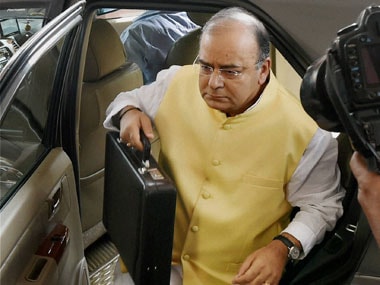Our politicians have had their say on Arun Jaitley’s maiden budget effort. But what do the thinking types, economists and experts, among them,have to say about it? Here’s a summary.
A deep disappointment
Writing in the Indian Express, Pratap Bhanu Mehta, President of the Centre for Policy Research, has said that the BJP government’s first union budget was a deep disappointment for falling short of providing a “framework for growth or for curbing inflation”.
Mehta points to the shortcomings to using the Public-Private Partnership model to fix the country’s infrastructure shortcomings, the ad-hoc public spending on various public schemes without specifying concrete objectives and with setting a taxation target that could bring in greater administrative uncertainity with authorities arbitrarily targeting entities.
“This budget is a cross between bad elements of UPA-2 and NDA-1; there is no new Modi 1 in sight yet. The budget has no poetry and uncertain plumbing,” Mehta concludes.
‘A Chidambaram budget with saffron lipstick’
Economic Times columnist Swaminathan S Anklesaria Aiyar was completely unimpressed by the Modi government’s first budget and said the Finance Minister failed to walk the talk when it came to improving the fiscal health of the Indian economy.
According to him , this is no “radical Modi budget but a Chidambaram budget with saffron lipstick added.”
“My personal budget rating: 4.5 out of 10, not because Jaitley proposed anything terrible but because he could have done so much more. The budget had innumerable out lays for innumerable projects, a case of “no vote-bank left behind”. Instead of uniform tax rates without exceptions, Jaitley announced a multitude of small tax changes, all increasing the exceptions list,” he said.
[caption id=“attachment_90539” align=“alignleft” width=“380”]  Economists seem divided over Jaitley’s maiden budget. PTI[/caption]
Big picture of tax reforms missing
Bibek Debroy, Professor at the Centre for Policy Research, writing in the Economic Times feels that while it was not possible for the government to make long term promises just 45 days after taking office, it cannot take too much time for core Budget areas, revenue and expenditure and credibility.
Given the length of the Finance Minister’s budget speech, Debroy says that they should have focussed more on tax reforms.
“It’s that big picture of tax and expenditure reforms one misses in these 253 paragraphs. Since there were only 45 days, a focus on Part B and 25 paragraphs might have been far better,” Debroy writes.
Budget wasn’t inspirational enough
Sajjid Chinoy, chief economist for JP Morgan India, welcomed the fact that the Finance Minister has chosen to stick to the path of fiscal consolidation and that the government had stuck to ensuring “policy credibility and orthodoxy”.
Writing in Mint, Chinoy expressed unhappiness over the fact that the budget wasn’t as inspirational as it could have been by failing to provide any concrete plan for rebalancing the budget towards investment and supply, rationalising subsidies, restoring public investment and bringing in the Goods and Services Tax.
A historic speech
Chairman of Oxus Investments, Surjit Bhalla, wasn’t exactly pleased about how Arun Jaitley presented his budget but had no complaint about the content in it given that it spoke about how it will not only finance investments but also does not go overboard in doing so.
Writing in the Indian Express, Bhalla has rated the various schemes presented by Arun Jaitley. He rates the budget only 5 on 10 for resolving the retrospective tax quandary, 7 out of 10 for its suggestions for fiscal consolidation and 8 on 10 for its social programmes. However, he rated the budget speech 10 on 10 for its proposals for decentralisation and containing the fiscal deficit.
And he believes it could be historic.
“No matter how you slice it, Budget 2014-15 (but not the long “everything and don’t forget the kitchen sink” speech) is one of the best content budgets of the last two decades. One will have to wait till the February budget (2015-16) to see if the Modi-Jaitley budget will be remembered as second only (or equal to) the Narasimha Rao-Manmohan Singh budget of 1991,” Bhalla writes.
Some reassuring nudges and pushes, others not so much
Former deputy governor of the RBI and nowdirector of research, Brookings India, Subir Gokarn, was largely happy with the measures undertaken by the new Finance Minister, particularly his agricultural reform strategy, and said that despite the lack of specifics, the components of a strategy to contain food inflation were present.
He wasn’t entirely sure about the government’s plans for infrastructure either saying that more detailing was needed.
“Overall, though, the infrastructure challenge remains very significant, and we need to see a lot more detailing of the approach that the government intends to take,” Gokarn writes in the Business Standard.
Taking note of the “nudges and pushes” by Jaitley, Gokarn wrote that the firm commitment to GST was reassuring and incentives to buy bonds were significant. However, he believes the Finance Minister may have got ahead of himself by expecting to raise almost Rs 65,000 crore through disinvestment and expecting revenue to grow 19 per cent.


)
)
)
)
)
)
)
)
)



